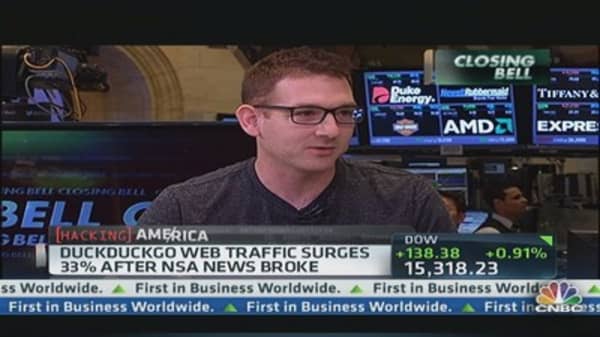The 'anonymous' search engine DuckDuckGo is getting a boost off the PRISM scandal that is putting big tech companies like Google and Apple to shame.
(Read More: How Prism Might Work, and Why That Matters to Congress and You )
DuckDuckGo, a search engine that claims it gives its users complete anonymity, has seen a 33 percent increase in users since the NSA news broke over a week ago, said founder and CEO Gabriel Weinberg on CNBC's Closing Bell Tuesday.
"We always knew people didn't want to be tracked, but what hadn't happened was reporting on the private alternatives and so it's no surprise that people are making a choice to switch to things that that will give them great results and also have real privacy," Weinberg said.
Basically, most tech companies store user information—like searches, email account data, searches on social platforms—in data warehouses, so that it can be accessed again. But DuckDuckGo opts to throw any of that information away and not to save it, Weinberg said.




